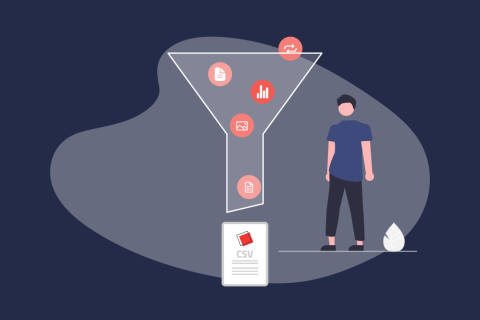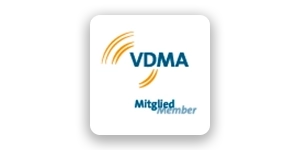Product Communications
ECLASS: The Data Standard for Industry 4.0

Content
Boost Your Competitive Prowess with the ECLASS Classification and PIM
In today’s business world, the efficient management and classification of your product data plays a decisive role. The right classification does not only facilitate your search for products and product information but also optimizes the data exchange with companies, customers, and partners.
This article analyzes the synergy between ECLASS standard (formerly “eCl@ss”) and PIM — and how it can increase the efficiency of your product management, reduce the error rate, and push your competitiveness. The smooth interplay of PIM system and classification standards supports your company in the digital age and guarantees that your product information is not only all-inclusive but also well-harmonized – aspects that are important if you want to stay successful in this data-driven world.
What is ECLASS?
ECLASS is a cross-industry classification standard that enables you to consistently identify products and services on an international scale. The same-named non-profit organization was founded on November 14th, 2000, by twelve of the largest companies in German economy. By 2020, the association had already gathered well over 150 members worldwide. As a state-of-the-art ISO/IEC-compliant data standard utilized on a global scale, ECLASS is commonly referred to as the universal language of Industry 4.0 nowadays.
The standard is a hierarchical system and encompasses around 45,000 product classes and 19,000 unique features – allowing for a fine-grained and precise classification as well as a unique description of products and services. The result is standardized master data that can function as the enabling condition for an efficient Master Data Management. And it assures data integrity besides facilitating collaboration with global customers and suppliers. You can find an overview of the current ECLASS version on the official website of ECLASS e.V.
PIM and ECLASS Put into Practice
When it comes to formatting your products in accordance with the ECLASS standard, a so-called PIM system (Product Information Management system) can be of great help. Now, how exactly may a PIM system support you in putting your product classification into practice?
- Data Processing and Data Consolidation: A PIM system enables you to collect and optimize product data from diverse sources. This is a decisive step towards creating a comprehensive data foundation for your classification. With the aid of a built-in import configurator, you can import files in any data format into the PIM system.
- Data Quality Management (DQM): DQM helps you in your data maintenance processes with validation mechanisms that check for the completeness and quality of product data. Equipped with these DQM criteria defined on the basis of a classification, you can easily identify data records which don’t correspond to the criteria and make sure that this data can’t be exported from the system until it’s corrected or completed.
- Exportability: A PIM system allows you to export classified product data in various formats so that you can use it in other systems and on other platforms which require ECLASS data.
- Updates and Changes: Since classification standards improve over time, a PIM system can contribute to quickly adjusting product data to match the newest version and make corresponding updates for all channels.
These are only some examples as to why a PIM system can support you in exhausting the full potential of a cross-industry standard.
ECLASS, ETIM, and BMEcat – the Magic of the Digital Product World
While the classification makes sure that you can always pick out and categorize the correct product, BMEcat handles the smooth data exchange between business partners. In the E-Procurement field, this makes for a significant increase in efficiency while also reducing the error rate. Electronic catalogs that use a data standard are usually interoperable and can exchange data with both other systems and other platforms using the same classification. For more information on electronic catalogs in the BMEcat format, please refer to our article BMEcat: Exchange Format for Your Product Data.
Besides ECLASS, there are many more standards which serve other markets or sectors. One such example is ETIM. Here, once again, the versatility of PIM systems are brought to bear. Such systems do not only support ECLASS but offer possibilities to fully integrate it together with several other standards. Equipped with this, you’ll always correctly classify product information in a range of contexts.
Looking for an Exchange?
In case you’re looking for a solution to efficiently integrate ECLASS and other standards, our PIM system could be just the right answer for you. Contact us and learn more how we can optimize your Product Information Management together.
From Our Blog
You may also be interested in the following articles







